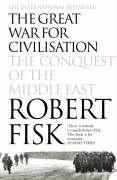| Listing 1 - 10 of 10 |
Sort by
|
Book
ISBN: 9782742752287 2742752285 Year: 2004 Volume: *1 Publisher: Paris Actes Sud
Abstract | Keywords | Export | Availability | Bookmark
 Loading...
Loading...Choose an application
- Reference Manager
- EndNote
- RefWorks (Direct export to RefWorks)
Democracy --- Arab-Israeli conflict --- Middle East --- United States --- Relations --- Democracy - Middle East --- Middle East - Relations - United States --- United States - Relations - Middle East

ISBN: 2020558157 9782020558150 Year: 2002 Publisher: Paris : Editions du Seuil,
Abstract | Keywords | Export | Availability | Bookmark
 Loading...
Loading...Choose an application
- Reference Manager
- EndNote
- RefWorks (Direct export to RefWorks)
Terrorism --- September 11 Terrorist Attacks, 2001 --- War on Terrorism, 2001 --- -Islamic fundamentalism --- Prevention --- United States --- Middle East --- Relations --- Foreign relations --- Philosophy --- Terrorism - Prevention --- United States - Relations - Middle East --- Middle East - Relations - United States --- United States - Foreign relations - 2001-2009 - Philosophy

ISBN: 9781841150086 1841150088 Year: 2006 Publisher: London Harper Perennial
Abstract | Keywords | Export | Availability | Bookmark
 Loading...
Loading...Choose an application
- Reference Manager
- EndNote
- RefWorks (Direct export to RefWorks)
Robert Fisk's bestselling eyewitness account of the events that have shaped the Middle East is alive with vivid reporting and incisive historical analysis. The history of the Middle East is an epic story of tragedy, betrayal and world-shaking events. It is a story that Robert Fisk has been reporting for over thirty years. His masterful narrative spans the most volatile regions of the Middle East, chronicling with both rage and compassion the death by deceit of tens of thousands of Muslims, Christians and Jews. Robert Fisk's remarkable history is also the tale of a journalist at war - learning of the 9/11 attacks while aboard a passenger jet, reporting from a bombed-out Baghdad, interviewing Osama bin Laden - and of the courage and frustration of a life spent writing the first draft of history.
International relations. Foreign policy --- Polemology --- History of Asia --- anno 1900-1999 --- Middle East --- War and society --- United States --- History, Military --- Colonization --- Relations --- War and society - Middle East --- Middle East - History, Military - 20th centur --- Middle East - History, Military - 21st century --- Middle East - Colonization --- United States - Relations - Middle East --- Middle East - Relations - United States
Book
ISBN: 9782707150721 270715072X Year: 2007 Volume: 241 Publisher: Paris: La Découverte,
Abstract | Keywords | Export | Availability | Bookmark
 Loading...
Loading...Choose an application
- Reference Manager
- EndNote
- RefWorks (Direct export to RefWorks)
Depuis les années 1970, l’histoire du Moyen-Orient se confond presque avec celle de ses guerres et de ses conflits : guerre soviétique en Afghanistan (1979-1989), guerre Iran-Irak (1980-1988), guerre du Liban (1975-1991), guerre du Golfe (1991), guerres américaines en Afghanistan (2001) et en Irak (2003), sans oublier l’interminable conflit israélo-palestinien... Mêlant récits, enquêtes, dialogues avec les acteurs – dirigeants et anonymes –, analyses et souvenirs personnels, Robert Fisk retrace l’épopée tragique du Moyen-Orient, à travers la chronique détaillée de ses sanglants épisodes.
War and society --- Middle East --- United States --- History, Military --- Colonization --- Relations --- War and society - Middle East --- Middle East - History, Military - 20th century --- Middle East - History, Military - 21st century --- Middle East - Colonization --- United States - Relations - Middle East --- Middle East - Relations - United States
Book

ISSN: 18697054 ISBN: 311030760X 3110338270 9783110338270 9783110372991 3110372991 9783110307603 9783110338287 3110338289 Year: 2014 Volume: 29 Publisher: Berlin Boston
Abstract | Keywords | Export | Availability | Bookmark
 Loading...
Loading...Choose an application
- Reference Manager
- EndNote
- RefWorks (Direct export to RefWorks)
Conspiracy Theories in the United States and the Middle East is the first book to approach conspiracy theorizing from a decidedly comparative and interdisciplinary perspective. Whereas previous studies have engaged with conspiracy theories within national frameworks only, this collection of essays draws attention to the fact that conspiracist visions are transnational narratives that travel between and connect different cultures. It focuses on the United States and the Middle East because these two regions of the world are entangled in manifold ways and conspiracy theories are currently extremely prominent in both. The contributors to the volume are scholars of Middle Eastern Studies, Anthropology, History, Political Science, Cultural Studies, and American Studies, who approach the subject from a variety of different theories and methodologies. However, all of them share the fundamental assumption that conspiracy theories must not be dismissed out of hand or ridiculed. Usually wrong and frequently dangerous, they are nevertheless articulations of and distorted responses to needs and anxieties that must be taken seriously. Focusing on individual case studies and displaying a high sensitivity for local conditions and the cultural environment, the essays offer a nuanced image of the workings of conspiracy theories in the United States and the Middle East.
Conspiracy theories --- Political culture --- Conspiracies --- History --- Political crimes and offenses --- History. --- Errors, inventions, etc. --- Conspiracy --- United States --- Middle East --- Civilization --- Politics and government --- Relations --- Conspiracy theories - United States --- Conspiracy theories - Middle East --- Conspiracy - United States --- Conspiracy - Middle East --- Political culture - United States - History - 20th century. --- United States - Civilization --- Middle East - Civilization --- United States - Politics and government --- Middle East - Politics and government --- United States - Relations - Middle East --- Middle East - Relations - United States --- Comparative analysis. --- Conspiracy theories. --- Middle East. --- Transnational narratives. --- United States of America.
Book
ISBN: 9780807858981 0807858986 1469605406 0807877611 9780807877616 9781469605401 9798893133660 Year: 2008 Publisher: Chapel Hill, N.C. The University of North Carolina Press
Abstract | Keywords | Export | Availability | Bookmark
 Loading...
Loading...Choose an application
- Reference Manager
- EndNote
- RefWorks (Direct export to RefWorks)
Douglas Little explores the stormy American relationship with the Middle East from World War II through the war in Iraq, focusing particularly on the complex and often inconsistent attitudes and interests that helped put the United States on a collision course with radical Islam early in the new millennium. After documenting the persistence of ""orientalist"" stereotypes in American popular culture, Little examines oil, Israel, and other aspects of U.S. policy. He concludes that a peculiar blend of arrogance and ignorance has led American officials to overestimate their ability to shape events
Orientalism --- Nationalism --- Arab-Israeli conflict --- United States --- Middle East --- Relations --- International relations. Foreign policy --- anno 2000-2009 --- anno 1940-1949 --- anno 1980-1989 --- anno 1960-1969 --- anno 1950-1959 --- anno 1970-1979 --- anno 1990-1999 --- Arab-Israeli conflict. --- East and West --- Israel-Arab conflicts --- Israel-Palestine conflict --- Israeli-Arab conflict --- Israeli-Palestinian conflict --- Jewish-Arab relations --- Palestine-Israel conflict --- Palestine problem (1948- ) --- Palestinian-Israeli conflict --- Palestinian Arabs --- History --- Orientalism - United States --- Nationalism - Middle East --- United States - Relations - Middle East --- Middle East - Relations - United States --- United States of America

ISBN: 1577180909 1577180895 9781577180906 Year: 2004 Publisher: Malden, MA ; Oxford : Blackwell Pub.,
Abstract | Keywords | Export | Availability | Bookmark
 Loading...
Loading...Choose an application
- Reference Manager
- EndNote
- RefWorks (Direct export to RefWorks)
Guerre en Irak, 2003-2011 --- -Iraq War, 2003-2011. --- Iraq War, 2003-. --- Iraq War, 2003-2011. --- Arab-Israeli conflict. --- Imperialism. --- War on Terrorism, 2001-. --- War on Terrorism, 2001-2009. --- Geografie --- Sociale geografie --- Politieke Geografie. --- Great Britain --- Middle East --- United States --- Relations --- Iraq War, 2003-2011 --- War on Terrorism, 2001-2009 --- Conflit israélo-arabe --- Impérialisme --- Guerre contre le terrorisme, 2001-2009 --- Grande-Bretagne --- Moyen-Orient --- Etats-Unis --- Imperialism --- War on Terrorism, 2001 --- -Iraq War, 2003-2011 --- Arab-Israeli conflict --- Middle East - Relations - United States --- United States - Relations - Middle East --- Middle East - Relations - Great Britain --- Great Britain - Relations - Middle East
Book
ISBN: 9782213654461 2213654468 Year: 2011 Publisher: Paris Librairie Arthème Fayard
Abstract | Keywords | Export | Availability | Bookmark
 Loading...
Loading...Choose an application
- Reference Manager
- EndNote
- RefWorks (Direct export to RefWorks)
Evangelicalism --- Religious right --- Evangélisme --- Droite religieuse --- Relations --- Judaism --- Judaïsme --- United States --- Etats-Unis --- Civilization --- Jewish influences --- Foreign relations --- Civilisation --- Influence juive --- Relations extérieures --- Christian Zionism --- Religion and politics --- Christians --- Christianity and politics --- Political activity --- Middle East --- Christian Zionism - United States. --- Religion and politics - United States. --- Christians - Political activity - United States. --- Christianity and politics - United States. --- Middle East - Relations - United States. --- United States - Relations - Middle East. --- les Etats-Unis --- lobby juif --- la politique étrangère américaine --- le Moyen-Orient --- la droite chrétienne --- l'Etat juif --- chrétiens sionistes --- conservatisme --- George W. Bush --- Sarah Palin --- théologie --- fondamentalisme --- radicalisme --- le Proche-Orient --- Israël --- religion et politique --- Palestine
Book
ISBN: 9780231174008 0231174004 0231540558 Year: 2016 Publisher: New York Columbia University Press
Abstract | Keywords | Export | Availability | Bookmark
 Loading...
Loading...Choose an application
- Reference Manager
- EndNote
- RefWorks (Direct export to RefWorks)
When Henry Luce announced in 1941 that we were living in the "American century," he believed that the international popularity of American culture made the world favorable to U.S. interests. Now, in the digital twenty-first century, the American century has been superseded, as American movies, music, and video games are received, understood, and transformed.How do we make sense of this shift? Building on a decade of fieldwork in Cairo, Casablanca, and Tehran, Brian T. Edwards maps new routes of cultural exchange that are innovative, accelerated, and full of diversions. Shaped by the digital revolution, these paths are entwined with the growing fragility of American "soft" power. They indicate an era after the American century, in which popular American products and phenomena-such as comic books, teen romances, social-networking sites, and ways of expressing sexuality-are stripped of their associations with the United States and recast in very different forms. Arguing against those who talk about a world in which American culture is merely replicated or appropriated, Edwards focuses on creative moments of uptake, in which Arabs and Iranians make something unexpected. He argues that these products do more than extend the reach of the original. They reflect a world in which culture endlessly circulates and gathers new meanings.
Popular culture --- Orientalism --- Ethnic attitudes --- Culture diffusion --- Globalization --- Social aspects --- United States --- Middle East --- Relations --- Civilization --- Middle West --- 21st century --- Cultural diffusion --- Diffusion of culture --- Culture --- Social change --- Attitude (Psychology) --- Ethnic relations --- Minorities --- Cultural awareness --- Race awareness --- East and West --- Culture, Popular --- Mass culture --- Pop culture --- Popular arts --- Communication --- Intellectual life --- Mass society --- Recreation --- Global cities --- Globalisation --- Internationalization --- International relations --- Anti-globalization movement --- Asia, South West --- Asia, Southwest --- Asia, West --- Asia, Western --- East (Middle East) --- Eastern Mediterranean --- Fertile Crescent --- Levant --- Mediterranean Region, Eastern --- Mideast --- Near East --- Northern Tier (Middle East) --- South West Asia --- Southwest Asia --- West Asia --- Western Asia --- Orient --- Popular culture - United States --- Popular culture - Middle East --- Orientalism - United States --- Ethnic attitudes - Middle East --- Culture diffusion - Middle East --- Globalization - Social aspects - Middle East --- United States - Relations - Middle East --- Middle East - Relations - United States --- Middle East - Civilization - 21st century
Book
ISBN: 2707145734 9782707145734 Year: 2005 Publisher: Paris La découverte
Abstract | Keywords | Export | Availability | Bookmark
 Loading...
Loading...Choose an application
- Reference Manager
- EndNote
- RefWorks (Direct export to RefWorks)
Depuis les années 1970, l’histoire du Moyen-Orient se confond presque avec celle de ses guerres et de ses conflits : guerre soviétique en Afghanistan (1979-1989), guerre Iran-Irak (1980-1988), guerre du Liban (1975-1991), guerre du Golfe (1991), guerres américaines en Afghanistan (2001) et en Irak (2003), sans oublier l’interminable conflit israélo-palestinien... Mêlant récits, enquêtes, dialogues avec les acteurs – dirigeants et anonymes –, analyses et souvenirs personnels, Robert Fisk retrace l’épopée tragique du Moyen-Orient, à travers la chronique détaillée de ses sanglants épisodes.
War and society --- Middle East --- United States --- History, Military --- Colonization --- Relations --- BPB0601 --- 956.9 --- 341.31 --- Geschiedenis van het Nabije Oosten --- Oorlogstoestand. Staat van oorlog. Oorlogsverklaring --- 341.31 Oorlogstoestand. Staat van oorlog. Oorlogsverklaring --- 956.9 Geschiedenis van het Nabije Oosten --- 936 --- terrorisme --- guerres du Golfe --- politique mondiale --- journalisme de guerre --- hedendaagse wereld na 1945 --- temps contemporains après 1945 --- War and society - Middle East --- Middle East - History, Military - 20th century --- Middle East - History, Military - 21st century --- Middle East - Colonization --- United States - Relations - Middle East --- Middle East - Relations - United States --- Oussama ben Laden --- Soudan --- le régime islamique de Khartoum --- Afghanistan --- Jalalabad --- les Taliban --- Al-Qaïda --- la Russie --- l'Armée rouge en Afghanistan --- Babrak Karmal --- la résistance afghane --- Kandahar --- Peshawar --- Pakistan --- les moudjahidines --- Sorkh Rud --- la guerre sainte --- la CIA --- rébellion --- identité religieuse --- le Kremlin --- les services secrets britanniques --- Angleterre --- Etats-Unis --- coup d'état contre Mossadegh --- démocratie --- laïcité --- l'Iran --- dictature --- le Shah --- la Savak --- révolution islamique de 1979 --- ayatollah Khomeiny --- la répression politique dans l'Iran postrévolutionnaire --- la guerre --- la conquête de Bassora --- Irak --- chiisme --- Saddam Hussein --- Bagdad --- extrémisme islamique iranien --- la guerre Iran-Irak --- la communauté internationale --- les Kurdes d'Halabja --- la frégate américaine Stark --- le golfe Persique --- Irangate --- la péninsule de Fao --- Iran Air --- l'USS Vincennes --- Bill Fisk --- les effets de la Grande Guerre sur la carte du Moyen-Orient --- Syrie --- Liban --- Israël --- les Arméniens --- génocide au Liban --- Turquie --- la France --- le Grand Mufti Amin al-Husseini --- Palestine --- l'Allemagne nazie --- le conflit israélo-palestinien --- le terrorisme --- Yasser Arafat --- les accords d'Oslo --- OLP --- la colonisation israélienne et la violence palestinienne --- Amira Hass --- la seconde Initifada --- Abdoul-Aziz al-Rantissi --- Hamas --- Gaza --- le Koweït --- la seconde guerre du Golfe --- le roi Fahd --- Arabie Saoudite --- opération humanitaire 'Provide comfort' --- le 'nouvel ordre mondial' --- opération 'Tempête du désert' --- catastrophe humanitaire en Irak --- l'ONU --- la Grande Bretagne --- épidémie de cancers --- les munitions à uranium --- 11 septembre 2001 --- guerre contre le terrorisme --- la guerre de Suez --- Egypte --- Atomic Dog --- Annihilator --- Anthrax --- Agamemnon --- propagande --- islam
| Listing 1 - 10 of 10 |
Sort by
|

 Search
Search Feedback
Feedback About UniCat
About UniCat  Help
Help News
News